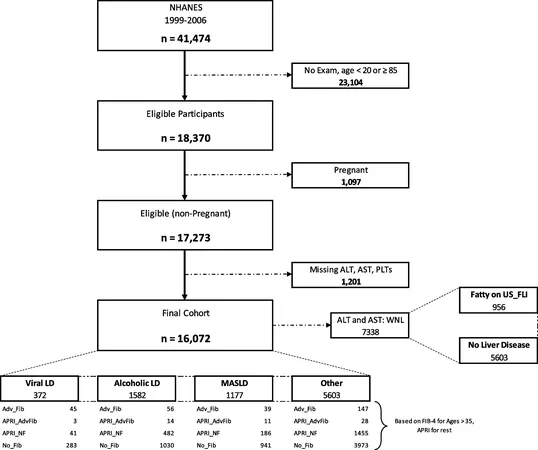
Unlocking Agricultural Potential: Researchers Indicate Collaboration is Key to Achieving the Ultimate Genotypes in Plants and Livestock
2024-11-19
Author: Li
Unlocking Agricultural Potential
In a groundbreaking initiative, researchers from the University of Queensland are paving the way for revolutionary advancements in agricultural breeding. Their goal? To develop crops that yield high productivity, exhibit heat resistance, and resist diseases, while also refining cattle breeds known for low emissions and exceptional feed conversion efficiency.
The Quest for the Ultimate Genotype
Professor Ben Hayes, affiliated with UQ's Queensland Alliance for Agriculture and Food Innovation (QAAFI), highlights that the pursuit of the "ultimate genotype" could result in enhancing the performance of top individuals in a species by as much as six times. This improvement has already been witnessed in notable examples such as dairy cattle, wheat, and chickpeas.
Genome Profiling and Ideal Genotypes
With extensive genome profiling of millions of cattle and plant species, researchers are beginning to visualize what these ideal genotypes could resemble. Professor Hayes elaborates, “We can envision stacking the most beneficial genomic segments from diverse individuals into a single 'ultimate individual.’” Current advancements in gene editing and synthetic biology are identified as crucial strategies to accelerate this process, promising to achieve remarkable outcomes in reduced timeframes.
Challenges of Traditional Breeding Methods
However, traditional breeding methods face certain limitations. Despite adopting techniques like speed breeding for crops and IVF in cattle, digital simulations have shown that attaining the ultimate genotype may necessitate many generations of selective breeding. Professor Hayes emphasizes the importance of animal welfare, stating, “We must ensure the welfare and fitness of livestock, as enhancing a single trait can negatively impact others.” He further notes the challenges posed by rapidly changing climate conditions and evolving consumer preferences.
The Role of Gene Editing and Synthetic Biology
Gene editing and synthetic biology, nonetheless, emerge as game-changers in this context. They could enable researchers to reach their breeding objectives faster, potentially in just a few generations.
Implications of Innovations in Breeding
QAAFI plant geneticist Professor Ian Godwin shares that the implications of these innovations are enormous. “If we successfully harness these technologies, it will revolutionize both plant and animal breeding,” he asserts. The early stages of gene editing have already shown promising results, with scientists able to manipulate a handful of genes and expedite the creation of new genetic combinations. Professor Godwin states, “Our simulations reveal that the genetic progress will be accelerated significantly if we can edit multiple genes at once.”
The Importance of Collaboration
International collaboration is deemed essential for these endeavors to flourish. Already, initiatives such as the International Research Training Group and the UQ-led ARC Training Centre in Predictive Breeding are underway. As Professor Godwin calls out to the global genetics community, he urges, “We invite other groups to collaborate with us in these efforts. Our aim is to test these theories on a larger scale across various species, ultimately transitioning our findings from lab settings to real-world applications.”
Conclusion: A Transformative Future for Agriculture
The future of our agricultural landscape hangs in the balance, and with dedicated research and collaborative ventures, the dream of achieving ultimate genotypes is on the horizon. This revolutionary research could fundamentally alter how we grow food and raise livestock, making strides towards sustainable agricultural practices in a world that needs them more than ever.



 Brasil (PT)
Brasil (PT)
 Canada (EN)
Canada (EN)
 Chile (ES)
Chile (ES)
 España (ES)
España (ES)
 France (FR)
France (FR)
 Hong Kong (EN)
Hong Kong (EN)
 Italia (IT)
Italia (IT)
 日本 (JA)
日本 (JA)
 Magyarország (HU)
Magyarország (HU)
 Norge (NO)
Norge (NO)
 Polska (PL)
Polska (PL)
 Schweiz (DE)
Schweiz (DE)
 Singapore (EN)
Singapore (EN)
 Sverige (SV)
Sverige (SV)
 Suomi (FI)
Suomi (FI)
 Türkiye (TR)
Türkiye (TR)